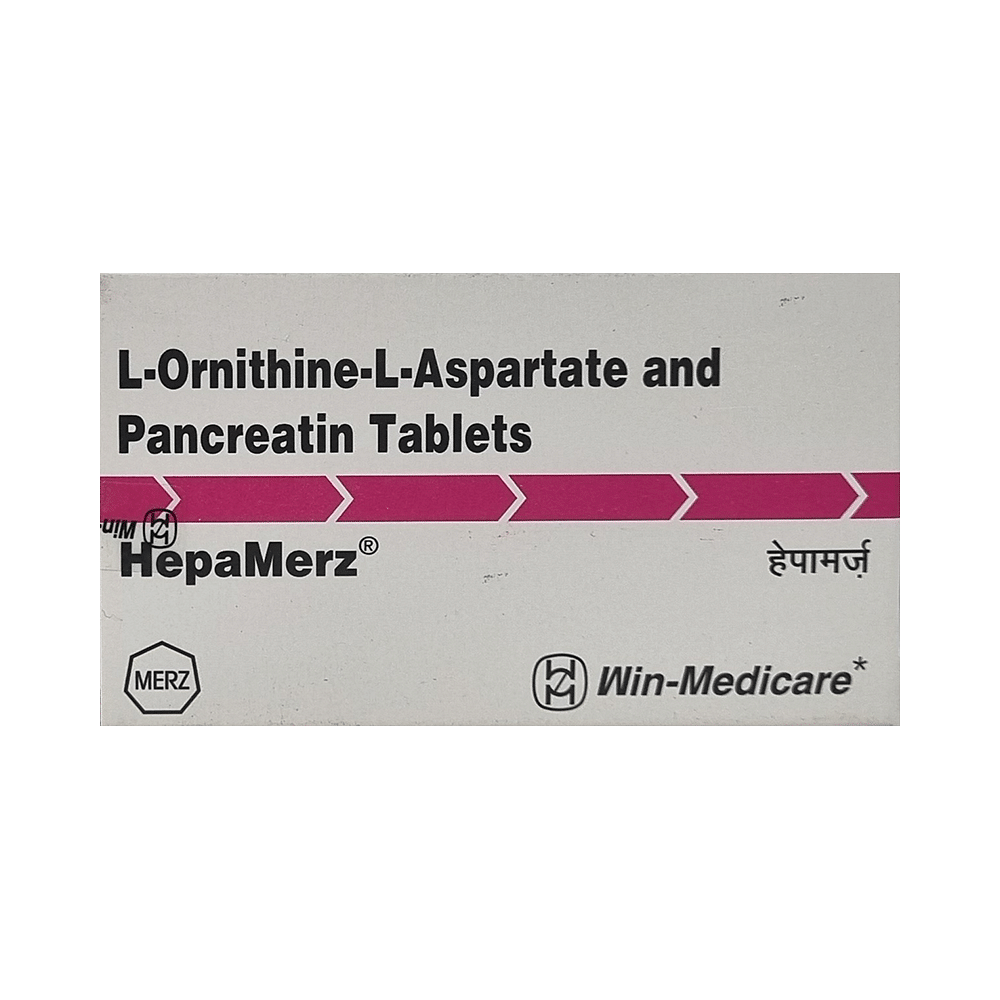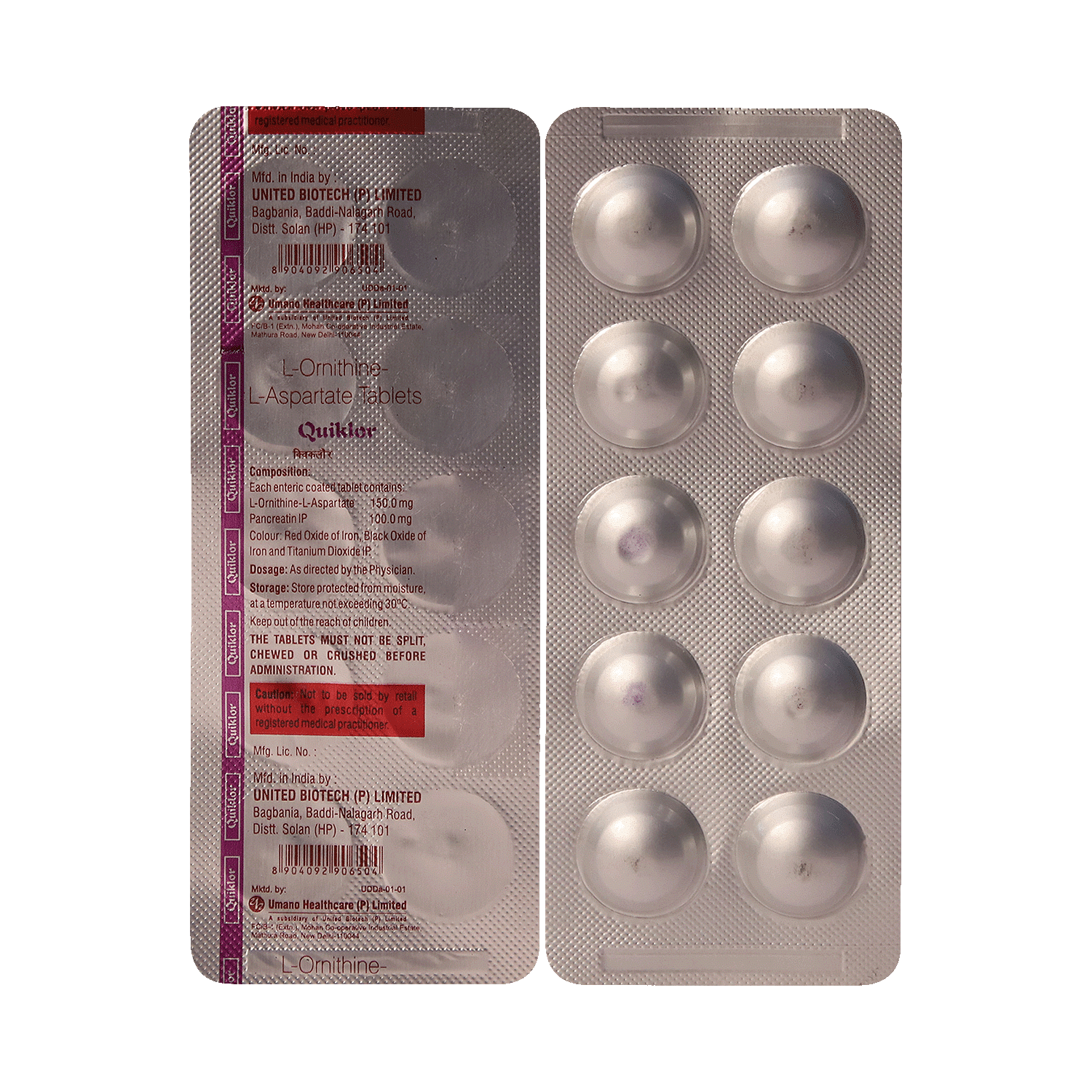
Hepacure PN 150 mg/100 mg Tablet
Manufacturer
Mission Research Laboratories Pvt Ltd
Salt Composition
L-Ornithine L-Aspartate (150mg) + Pancreatin (100mg)
Key Information
Short Description
Hepacure PN 150 mg/100 mg Tablet is a combination medicine used in the treatment of indigestion. It works by improving the function of the digestive system.
Dosage Form
Tablet
Introduction
Hepacure PN 150 mg/100 mg Tablet is taken with food in a dose and duration as advised by the doctor. The dose you are given will depend on your condition and how you respond to the medicine. You should keep taking this medicine for as long as your doctor recommends. If you stop treatment too early your symptoms may come back and your condition may worsen. Let your healthcare team know about all other medications you are taking as some may affect or be affected by this medicine. The most common side effects are nausea, stomach pain, bloating, diarrhea and constipation. Most of these are temporary and usually resolve with time. Contact your doctor straight away if you are at all concerned about any of these side effects. To overcome constipation, you should add fiber-rich foods in your diet and stay hydrated. Before you start taking this medicine it is important to inform your doctor if you are suffering from liver or kidney disease. Pregnant or breastfeeding women should also consult their doctor. Lifestyle modifications like having a fiber-rich diet, increase fluid intake and regular exercise can help you to get better results.
Directions for Use
Take this medicine in the dose and duration as advised by your doctor. Swallow it as a whole. Do not chew, crush or break it. Hepacure PN 150 mg/100 mg Tablet is to be taken with food.
Safety Information
Side Effects
nausea stomach pain bloating diarrhea constipation
Alcohol Warning
It is not known whether it is safe to consume alcohol with Hepacure PN 150 mg/100 mg Tablet. Please consult your doctor.
Breastfeeding Warning
Information regarding the use of Hepacure PN 150 mg/100 mg Tablet during breastfeeding is not available. Please consult your doctor.
Pregnancy Warning
Hepacure PN 150 mg/100 mg Tablet may be unsafe to use during pregnancy. Although there are limited studies in humans, animal studies have shown harmful effects on the developing baby. Your doctor will weigh the benefits and any potential risks before prescribing it to you. Please consult your doctor.
How it works
Hepacure PN 150 mg/100 mg Tablet is a combination of two amino acids (L-Ornithine L-Aspartate) and a digestive enzyme (Pancreatin). L-Ornithine works by reducing blood ammonia levels. This helps the diseased liver carry out its function smoothly. L-Aspartate works by generating energy and helping in regeneration of damaged liver cells. Pancreatin aids in digestion of food.
Quick Tips
Take it during or immediately after a meal or a snack as per your doctor’s advice and drink plenty of water along with it. Inform your doctor if you experience severe or long-lasting abdominal pain, persistent vomiting and signs of dehydration like dark colored and strong-smelling urine and a low frequency of urination. Inform you doctor if you are pregnant, planning to conceive or breastfeeding.
Related Medicines

HepaMerz Tablet

Hepagut Tablet

Rilivin 150mg/100mg Tablet

Syliv 150mg/100mg Tablet

Quiklor 150mg/100mg Tablet

Silizom P 150mg/100mg Tablet

Sangliv PN 150mg/100mg Tablet

Humaliv PC 150mg/100mg Tablet

Livable-L 150mg/100mg Tablet

Hepamarin 150mg/100mg Tablet
Frequently asked questions
What is Hepacure PN 150 mg/100 mg Tablet?
Hepacure PN 150 mg/100 mg Tablet is a medication used to treat indigestion.
Is it safe to use Hepacure PN 150 mg/100 mg Tablet?
Hepacure PN 150 mg/100 mg Tablet is generally safe for most patients. However, some individuals may experience side effects such as nausea, stomach pain, bloating, diarrhea, and constipation.
Can the use of Hepacure PN 150 mg/100 mg Tablet cause nausea and vomiting?
Yes, Hepacure PN 150 mg/100 mg Tablet can cause nausea and vomiting. Taking it with milk, food, or antacids may help reduce this effect. Fatty or fried foods should be avoided alongside the medication. If nausea occurs, drinking small amounts of water frequently is recommended. If vomiting persists, you should consult a doctor to assess for potential dehydration. Avoid taking other medications without speaking to a medical professional.


